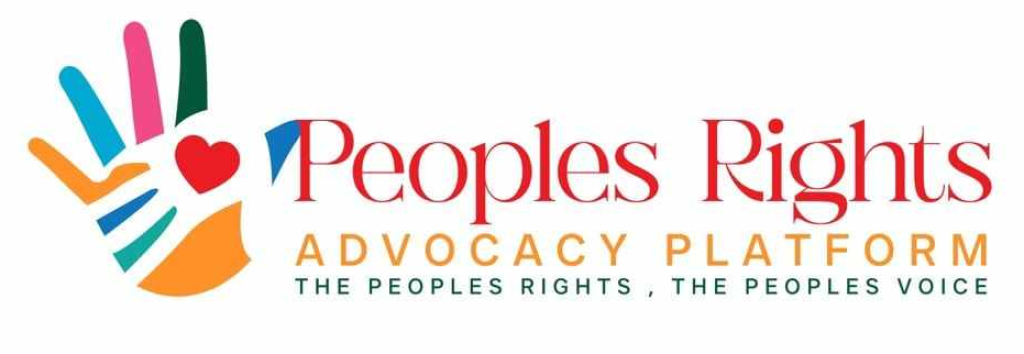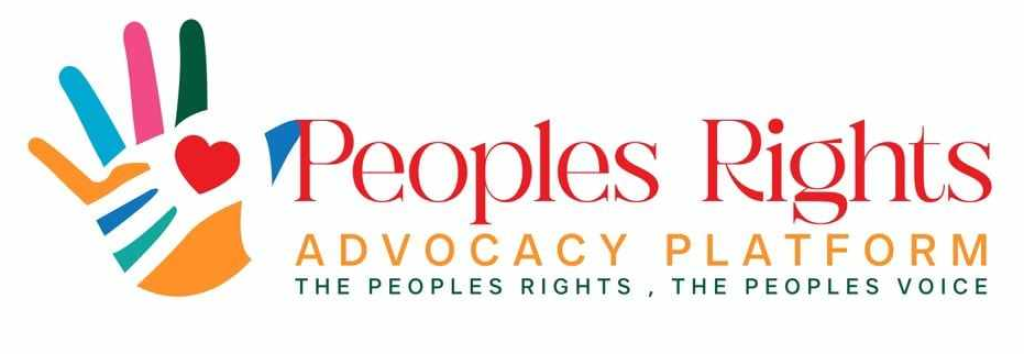The All-Anglophone Conference of 1993 after long and focused deliberation settled on Devolution or Federation as the best way forward to avid tragedy and self-destruction of Cameroon as a nation. Their call for devolving powers to the regions through Devolution or Federation were ignored. Twenty three years later their prophesy of self-destruction came true. -The anglophone crisis.
After six years of conflict, resulting in over 6,000 deaths, tens of thousands missing, and more than a million people displaced, Anglophone Cameroonians are once again exploring devolution as a governance solution for peace and development. Learning from successful models in the United Kingdom, France Canada, and other diverse countries, Anglophone Cameroonian leaders are preparing to once again explore the implementation of a system of devolved governance. This approach is intended to empower regional governments with key local responsibilities while maintaining the nation’s unity through a centrally managed structure. Devolution will allow Anglophone regions to address unique challenges and cultural differences while ensuring overall stability and economic cohesion.
What is Devolution? : A Balanced Framework for Governance and Peace In its simplest form Devolution transfers certain governance functions and powers to regional or autonomous regions or Authorities allowing them to manage specific aspects independently. This decentralization fosters regional governance, helping regions address their specific needs while preserving the central government’s control over key national concerns, such as defence and foreign policy . In post-conflict settings, devolution promotes inclusion, regional representation, and stability.
Lessons from Devolution in the United Kingdom ,France and Canada The United Kingdom implemented devolution in 1998, giving Scotland, Wales, and Northern Ireland own assemblies and autonomy over domestic matters while centralizing essential national functions. Similarly, Canada’s provinces, such as Quebec, exercise regional powers while remaining under federal oversight. These examples illustrate that devolution can empower culturally distinct regions within a unified nation, offering a promising model for Cameroon’s peacebuilding and governance goals.
Devolution in Canada In Canada, devolution has empowered provinces such as Quebec to establish their own assemblies and manage key areas like education, healthcare, and natural resources, allowing them to tailor policies to meet the unique needs of their populations. This decentralized approach has strengthened regional identities and autonomy while preserving national unity, contributing to a stable and cooperative federal structure. Devolution in France In Corsica, devolution has granted the island greater autonomy within France, particularly through the establishment of the Corsican Assembly, which oversees areas like economic development, education, and cultural preservation. This arrangement has enabled Corsica to address its distinct linguistic and cultural identity within the framework of the French Republic, fostering local governance and reducing longstanding tensions between Corsica and the central government
Proposed Devolution Framework for Cameroon
In Cameroon, devolution would grant autonomy to the Anglophone region of the country with its own assembly with devolved powers over several items such as the 30 listed below while the central government in Yaounde retains some core federal maters as below.
| Items to be Devolved to Autonomous Anglophone region | Items Retained by Central Government in Yaounde |
| 1. Policing and Community Law Enforcement | Défense |
| 2. Judiciary and Justice Matters | Foreign Policy |
| 3. Local Education Policy (regional curriculum design) | National Security |
| 4. Healthcare Administration | National Financial and Monetary Policy |
| 5. Local Taxation and Budgeting | Immigration Policy |
| 6. Public Transportation and Infrastructure | Energy and Natural Resources Management |
| 7. Land Use and Zoning Regulations | Major Transport Infrastructure |
| 8. Housing and Urban Planning | Central Tax System and Federal Budget |
| 9. Agriculture and Food Security Programs | |
| 10. Environmental Management and Conservation | |
| 11. Water Resource Management | |
| 12. Local Energy Generation (small-scale projects) | |
| 13. Vocational and Skill Training | |
| 14. Social Welfare Services | |
| 15. Cultural and Language Preservation | |
| 16. Local Tourism Development and Promotion | |
| 17. Public Safety (e.g., fire services) | |
| 18. Business Licensing and Support for Small Enterprises | |
| 19. Regional Sports and Cultural Events | |
| 20. Local Arts and Creative Industries | |
| 21. Community Development Initiatives | |
| 22. Urban Waste Management | |
| 23. Parks and Recreational Facilities Management | |
| 24. Local Road Maintenance | |
| 25. Youth and Women Empowerment Programs | |
| 26. Local Building and Safety Standards | |
| 27. Small-Scale Trade and Market Regulation | |
| 28. Public Health Programs (e.g., vaccination drives) | |
| 29. Community-Based Policing Initiatives | |
| 30. Civil Registries (births, marriages, deaths) |
Rationale for Devolved Items
- Policing and Community Law Enforcement
- Decentralizing and devolving policing allows regions to address unique security concerns, fostering trust and cooperation within communities. This is crucial for areas where localized policing can address cultural sensitivities and improve public safety.
- Judiciary and Justice Matters
- Local judicial administration enables regions to handle cases with cultural sensitivity and existing lecal systems that had served the Anglophone region since before independence, improving public confidence in justice systems and promoting timely conflict resolution.
- Local Education Policy (Regional Curriculum Design)
- Education tailored to regional languages and cultures enhances relevance, inclusivity, and student engagement, fostering a more educated and cohesive population.
- Healthcare Administration
- Regional healthcare administration allows regions to adapt services to local needs and challenges, ensuring accessible and effective healthcare delivery.
- Local Taxation and Budgeting
- Local taxation empowers regions to raise and allocate funds for essential services, ensuring efficient financial management tailored to specific regional priorities.
- Public Transportation and Infrastructure
- Regional authorities can develop transport systems that meet unique local demands, reducing congestion and improving accessibility to services and economic opportunities.
- Land Use and Zoning Regulations
- Local control over land use enables sustainable and culturally appropriate development, balancing economic needs with environmental and cultural preservation.
- Housing and Urban Planning
- Regional oversight of housing allows regions to address local population pressures and economic needs, creating accessible housing aligned with regional demand.
- Agriculture and Food Security Programs
- Devolved agricultural policies support region-specific crops and food security strategies, improving local resilience and addressing food security.
- Environmental Management and Conservation
- Local control over environmental issues enables regions to protect local ecosystems, enforce pollution controls, and manage natural resources sustainably.
- Water Resource Management
- Water resource decisions at the local level allow regions to allocate and manage water sustainably based on specific needs and availability.
- Local Energy Generation (Small-Scale Projects)
- Regions can address local energy needs with small-scale projects like renewable energy initiatives, enhancing energy access and sustainability.
- Vocational and Skill Training
- Local control over training programs allows regions to provide skills aligned with local job markets, reducing unemployment and supporting economic development.
- Social Welfare Services
- Localized social welfare systems ensure assistance is tailored to specific regional demographics and needs, promoting social equity.
- Cultural and Language Preservation
- Devolution of cultural policies enables regions to preserve languages and traditions, fostering a stronger sense of identity and community pride.
- Local Tourism Development and Promotion
- Regional tourism promotion highlights unique cultural and natural attractions, supporting economic growth and cultural exchange.
- Public Safety (e.g., Fire Services)
- Regional oversight of fire services and disaster management improves responsiveness to emergencies, enhancing community resilience and safety.
- Business Licensing and Support for Small Enterprises
- Local licensing systems support small business growth by reducing regulatory barriers and fostering a supportive environment for local entrepreneurs.
- Regional Sports and Cultural Events
- Local governments can organize cultural and sports events, fostering pride and unity while promoting social and cultural engagement.
- Local Arts and Creative Industries
- Regional investment in arts supports local cultural expression and economic growth, promoting regional identity and innovation.
- Community Development Initiatives
- Local governments address specific community needs, promoting community-driven development and improved quality of life.
- Urban Waste Management
- Local waste management allows regions to tailor solutions to their waste management challenges, promoting cleanliness and public health.
- Parks and Recreational Facilities Management
- Regional oversight supports local needs for recreational spaces, promoting health and well-being.
- Local Road Maintenance
- Local road maintenance ensures timely repairs, improving road safety and transportation efficiency.
- Youth and Women Empowerment Programs
- Tailored empowerment programs address specific local barriers to inclusion, fostering social equity and community development.
- Local Building and Safety Standards
- Regional standards can address unique environmental and cultural needs, ensuring safe and sustainable building practices.
- Small-Scale Trade and Market Regulation
- Regional management of small-scale trade allows flexible regulations to support local economies and protect consumer interests.
- Public Health Programs (e.g., Vaccination Drives)
- Local health programs ensure that public health measures meet the specific needs of the population, improving health outcomes.
- Community-Based Policing Initiatives
- Regional authority over community policing fosters trust and collaboration, enhancing security and community well-being.
- Civil Registries (Births, Marriages, Deaths)
- Regional management of civil registries ensures accessibility, accuracy, and cultural sensitivity in record-keeping.
Rationale for Items Retained by the Central Government in Yaounde
- Défense and National Security
- Centralized defence ensures a unified strategy to protect national sovereignty and respond effectively to security threats.
- Foreign Policy
- A unified foreign policy maintains Cameroon’s global standing and fosters consistent relationships with other nations.
- National Financial and Monetary Policy
- Central control over monetary policy ensures economic stability, controls inflation, and ensures nationwide financial equality.
- Immigration Policy
- National immigration policy maintains secure borders and consistent regulations, crucial for managing international relations.
- Energy and Natural Resources Management
- Centralized management ensures sustainable use and equitable distribution of resources, supporting national interests.
- Major Transport Infrastructure
- Central oversight of major infrastructure projects ensures uniform development, connecting regions and supporting economic cohesion.
- Central Tax System and Federal Budget
- A unified tax system ensures equitable revenue distribution and supports national priorities, including social welfare and infrastructure.
Summary of Reasons for Devolution and Retention
- Devolved Powers: These allows the Anglophone region to exercise control over local matters that are essential to its identity, autonomy, and development needs,
- Retained Powers: These areas are crucial for maintaining national integrity, security, and international relationships, which require a unified policy approach and resources that extend beyond regional concerns .
- This simplified but incomplete and undebated framework envisions a fair and balanced devolution structure that addresses local needs and fosters national unity, aiming for a more peaceful, prosperous, and cohesive Cameroon.
Bottom of Form


